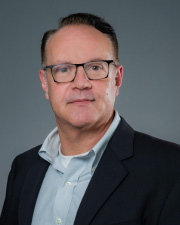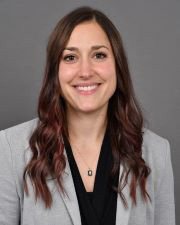Program Overview
The MS in Clinical Psychology is a rigorous, 24-month graduate program designed to prepare students for impactful careers as Licensed Psychological Associates (LPA) and Licensed Professional Counselors (LPC). This 63-credit hour program blends scientific training, clinical experience, and research to equip students with the skills needed to thrive in today’s mental health workforce or to continue their education at the doctoral level.
Priority deadline is December 1, 2025.
UTHealth Houston School of Behavioral Health Sciences welcomes international students to apply to our program. Please note that students admitted to the program must personally reside in the state of Texas before the first day of class. In addition, we are unable to sponsor students requiring F-1 visas at this time. Please be advised that applications and fees are not transferable among programs, and fees are nonrefundable.
Program Highlights
- 63 semester credit hours completed over two years
- Dual licensure preparation for both LPA and LPC pathways
- Integrated clinical training in diverse healthcare settings
- Research-based thesis to demonstrate scientific and clinical expertise
- Evidence-based curriculum aligned with APA Profession-Wide Competencies
What You’ll Learn
Students will gain a strong foundation in psychological science and clinical practice, including:
- Psychological assessment and diagnosis
- Evidence-based intervention strategies
- Ethical and legal standards in mental health care
- Cultural competence and diversity in clinical settings
- Interdisciplinary collaboration and consultation
- Professional communication and supervision skills
-
Clinical Training
Students will complete 300 hours of clinical experience, including 100 direct contact hours with patients. Training occurs in a variety of inpatient and outpatient behavioral health settings, where students will:
- Deliver supervised psychological services
- Apply evidence-based treatments
- Gain experience with diverse populations and clinical presentations
-
Research & Thesis
The program culminates in a research-based thesis, allowing students to:
- Explore a topic of clinical relevance
- Demonstrate mastery of research design and analysis
- Contribute to the scientific understanding of mental health
With dual licensure eligibility, graduates have the flexibility to pursue multiple career paths and meet the growing demand for mental health professionals in Texas and beyond.
Career Outcomes
Graduates of the MS in Clinical Psychology program are prepared for careers as:
Licensed Psychological Associates (LPA)
Conducting psychological assessments under supervision.
Licensed Professional Counselors (LPC)
Providing independent counseling services.
Mental Health Practitioners
In hospitals, clinics, schools, and private practice.
Doctoral students
In clinical psychology or related fields.
Program Demand & Labor Market Outlook
- Texas ranks among the lowest in access to mental health care and workforce availability. With over 60% of adults with untreated mental illness and a ranking of 50th in mental health workforce availability, the need for qualified mental health professionals is urgent.
- The U.S. Bureau of Labor Statistics projects an 18% growth in demand for licensed mental health professionals by 2032, with 42,000 job openings annually. Texas alone is projected to face a shortage of over 7,000 full-time mental health providers.
This program directly addresses these gaps by preparing graduates to enter the workforce as highly trained, licensed professionals ready to make a difference.
Faculty Mentorship
Our faculty are experienced clinicians, educators, and researchers committed to training the next generation of mental health professionals. Students benefit from:
- Individualized mentorship and supervision
- Expert instruction in clinical and ethical practice
- Support for thesis development and research





